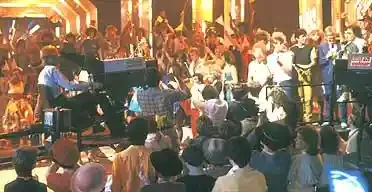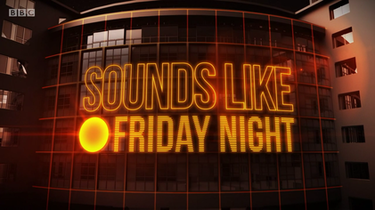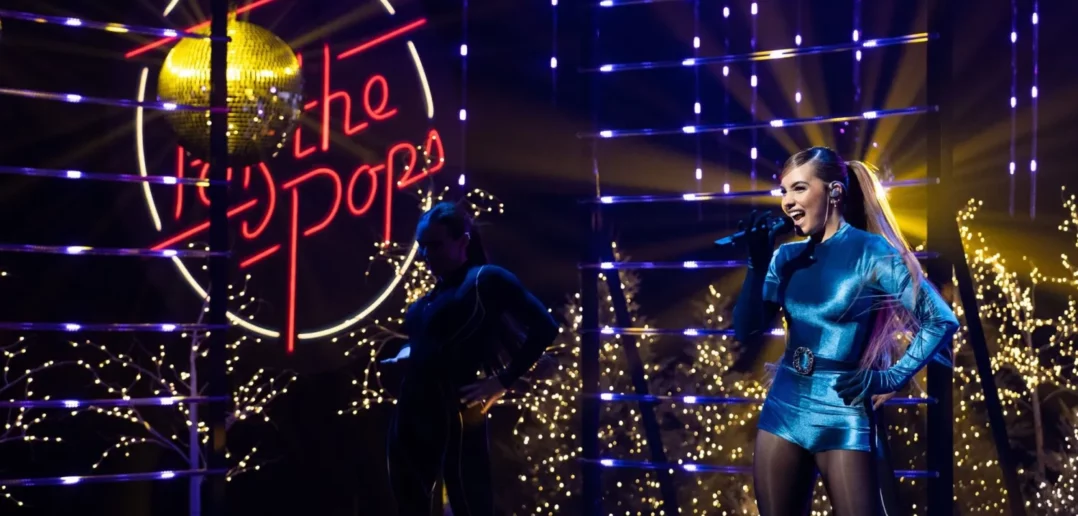As one of the most iconic British TV shows of all time, arguably at its peak in the 1980s, a return for the music chart-focused performance program Top of the Pops has been much discussed since the regular show ended in 2006.
Simon Cowell reportedly wanted to revive the show in 2008, and Nick Grimshaw announced that he was working on a ‘Top of the Pops-style show’ in 2016, yet neither of these came to fruition. While there have been Christmas and New Years Eve specials each year since then, they have finally been axed this year for an abridged Review of 2022 show that will largely feature pre-filmed performances from other BBC shows this year, and has been shunted from a BBC One afternoon Christmas Day slot to a late night Christmas Eve time on BBC Two, so a return for the much-loved British institution perhaps looks even less likely than ever. But why exactly has this much-discussed return never occurred?
Well, in a sense it already has. In 2017, the BBC launched Sounds Like Friday Night. Presented by Radio 1’s Greg James and 1Xtra’s A.Dot, it was a weekly 30-minute music show filled with not only performances, but also sketches and interviews. Instead of focusing on the chart, SLFN featured a mix of both big name artists alongside rising stars. However, despite featuring frankly massive names such as The Killers, Kasabian and a post-New Rules Dua Lipa, it failed to take off and was hardly able to reach 2 million viewers by the end of its second series in the Spring of 2018.
In a nutshell, the music landscape of 2022 just does not suit itself to a weekly live music TV show. For a start, there are so many other avenues in which music fans can access their favourite artists without constricting themselves to whatever the BBC deems to be the best in mainstream music that week. Social media platforms such as Instagram and TikTok have been crucial in breaking some of the world’s biggest current artists, and since the COVID pandemic have shown themselves to be more than able to host short acoustic performances of songs, to full live spectacles, such as The Weeknd’s ‘TikTok Experience’ in 2021.
The modern UK charts also do not lend themselves to the Top of the Pops format in the slightest. Gone are the fast-moving charts of the 80s in which songs were only likely to be purchased by an individual once and subsequently only contribute to a song’s chart life for one week, and instead streaming platforms allow users to contribute to a song’s chart life for weeks on end. The Official Charts Company have tried to tackle this by introducing certain rules, such as the controversial “ACR rule” in which a song’s streams are halved for the chart after 9 weeks in the chart and 3 weeks of sales decline – confusing, I know! However, there are still far fewer Top 40 hits than there were in the 80s, and as a consequence, a hypothetical Top of the Pops would have far less choice if it still wanted to focus on the very *Top* of the Pops.
Since the 1980’s, the live broadcast capabilities have also allowed the BBC to expand their music programming in the modern era. While the ‘alternative’ music show Later… with Jools Holland has run continually since 1992, more mainstream music is still given pride of place in the BBC schedules through their expansive yearly coverage of festivals including Glastonbury, Reading & TRNSMT, providing more minutes of music broadcasting than was ever achieved in the past through Top of the Pops.







